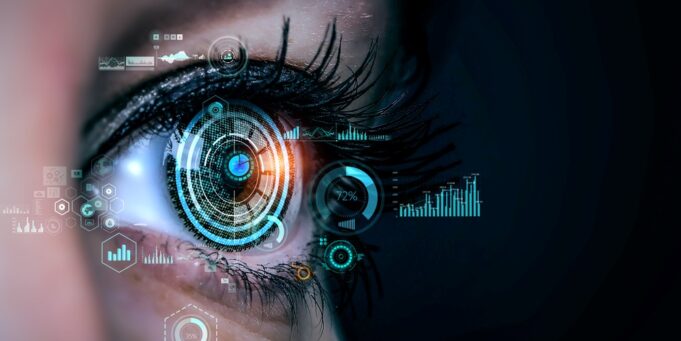Sam Altman’s Worldcoin project has captured global attention with its bold ambition: to create a new form of financial inclusion by distributing free cryptocurrency in exchange for biometric data. Through its innovative World ID system, which collects and stores iris scans to verify user identities, the project claims to offer a path toward universal basic income (UBI). This promise has garnered interest, particularly in underbanked regions like Guatemala and Malaysia, where financial inclusion remains a pressing issue. However, the ambitious plan has not come without significant controversy.
Critics argue that Worldcoin’s reliance on sensitive biometric data could come at a steep price. They raise ethical questions about privacy, data security, and the true cost of financial inclusion. With regulatory scrutiny increasing – especially in Europe, where stringent data protection laws like the General Data Protection Regulation (GDPR) are in place – the project finds itself at a crossroads. Can Worldcoin deliver on its promise of economic empowerment without infringing on the privacy rights of millions?
The Allure of Financial Inclusion
Worldcoin’s value proposition is clear: offer free cryptocurrency to anyone willing to participate. The project especially targets populations with limited access to traditional banking systems. In regions like Latin America, Southeast Asia, and parts of Africa, where financial exclusion remains prevalent, receiving free digital assets in exchange for participating in a new global financial system is an attractive proposition. By linking individuals to a verified digital identity using biometric data, Worldcoin seeks to address issues like fraud and multiple identities while fostering economic participation.
Guatemala is one of the countries where Worldcoin has launched, alongside Malaysia and Poland. In these markets, the project claims to have seen a positive reception. Users are eager to gain access to digital assets and the potential economic opportunities they bring. For many, particularly those who lack access to traditional banking, Worldcoin represents a leap toward financial empowerment and integration into the digital economy.
Ethical Concerns: Data Privacy in Exchange for Cryptocurrency
Despite its appealing narrative of inclusion, Worldcoin’s model has raised alarms among privacy advocates and regulators. At the heart of the criticism is the collection of biometric data – iris scans – that are central to the World ID system. To receive tokens, users must agree to have their irises scanned and stored. The process immediately invites questions about data security, user consent, and the potential misuse of such sensitive information.
The European Union, known for its strict data protection laws under GDPR, has already scrutinized Worldcoin’s operations. The project has faced regulatory pressure, with authorities raising concerns over how it handles and processes personal data. Worldcoin’s operations have encountered similar challenges in Singapore. There, investigations are underway to determine whether the project violates local privacy laws. These regulatory challenges have led the project to shift its focus away from Europe and toward markets in Asia and Latin America, where legal frameworks around data protection may be less restrictive.
GDPR’s requirements mandate that companies collecting biometric data must ensure explicit consent, proper storage, and the ability to delete or anonymize such data upon request. Worldcoin’s model, which stores irises on a blockchain to create a tamper-proof digital identity, raises difficult questions about how users can exercise their data rights in case of a breach or misuse. Critics argue that the lack of clear guidelines on how biometric data will be stored, shared, or protected creates an uneven power dynamic. Vulnerable populations may trade their privacy for access to financial resources.
Worldcoin Token: Financial Struggles and Auction Risks
In addition to the ethical and regulatory challenges surrounding Worldcoin’s biometric data collection, the financial performance of its native token (WLD) has also raised red flags. According to recent reports, a staggering 84% of WLD holders are currently facing losses. This steep decline in token value has shaken investor confidence and added another layer of complexity to the project’s trajectory.
Compounding these concerns is the upcoming auction of 22.3 million locked Worldcoin tokens held by the bankrupt FTX estate. This sale, which aims to liquidate the tokens as part of FTX’s bankruptcy proceedings, could further depress WLD prices by flooding the market with a large supply of tokens. The auction’s timing has worried investors. They fear that it will exacerbate existing downward pressure on the token, making recovery even more difficult.
Despite these financial setbacks, Worldcoin continues to push forward with its global expansion. It is banking on its long-term vision of financial inclusion to regain momentum. However, the combination of falling token prices and the looming FTX auction presents significant risks for the project’s financial health and investor sentiment. Whether Worldcoin can weather these challenges remains to be seen.
A Shift Toward Asia Amid Regulatory Hurdles
Facing mounting challenges in Europe, Worldcoin has recalibrated its strategy, shifting its attention to more welcoming regulatory environments. Asia, in particular, has become a focal point for the project’s expansion. Countries like Japan and Malaysia are now key markets in Worldcoin’s growth plan. The project believes that these regions, with their growing digital economies and less stringent data privacy regulations, offer fertile ground for its technology’s adoption.
However, the pivot toward Asia does not resolve the underlying concerns. Critics argue that while Worldcoin may be able to evade stricter European regulations by moving into more lenient jurisdictions, the ethical issues surrounding biometric data collection remain the same. Furthermore, some fear introducing such systems into regions where data protection laws are underdeveloped could expose users to even greater risks of exploitation and misuse.
The Promise and Perils of Biometric Identification
Worldcoin’s use of iris scanning technology is not merely a technical choice – it is central to the project’s vision. By creating a unique, verifiable digital identity for every participant, Worldcoin aims to eliminate fraud, reduce inequality, and distribute wealth more evenly. In theory, this system would help resolve many problems plaguing traditional financial systems, such as identity theft and financial exclusion.
However, using biometrics as a solution to these issues also raises concerns about the permanence of the data collected. Biometric data, unlike a password or personal identification number (PIN), cannot be easily changed if compromised. Once an individual’s iris scan is stored on a blockchain, the data is immutable. That potentially makes users vulnerable to future breaches without any recourse to protect their identity.
The long-term implications of creating such a vast database of biometric data are still unclear. Worldcoin assures users that their data will be securely stored and used only for identity verification. However, the decentralized nature of blockchain technology complicates the ability to control or manage this data in practice. For populations unfamiliar with the intricacies of blockchain and cryptocurrency, the risks may not be fully understood before they agree to participate.
Can Worldcoin Strike a Balance?
The tension between innovation and ethical responsibility is at the heart of the Worldcoin debate. On the one hand, the project offers a bold vision of financial inclusion that could bring millions into the global economy. On the other, it raises profound concerns about the cost of that inclusion, particularly in terms of personal privacy and data security.
As Worldcoin continues to expand into new markets, its success will likely depend on its ability to balance these competing demands. The project must find ways to address the legitimate privacy concerns raised by regulators and critics. At the same time, it should continue to offer a compelling value proposition for users, particularly in underbanked regions.
>>> Read more: 10 Unconventional Blockchain Uses You’d Be Surprised About
For now, Worldcoin’s gamble on biometrics remains a risky proposition. Whether the project can deliver on its promises without compromising user privacy will be a critical test for Worldcoin and the broader cryptocurrency space as it grapples with the complex intersection of technology, ethics, and financial inclusion.
Readers’ frequently asked questions
What is Worldcoin?
Worldcoin is a cryptocurrency project launched by Sam Altman, CEO of OpenAI. It’s goal is to create a global financial system accessible to everyone. At its core is the concept of World ID, a digital identity that verifies an individual’s humanity through biometric data, specifically iris scans. In exchange for their biometric data, participants receive Worldcoin tokens (WLD). They can use or trade $WLD in the cryptocurrency ecosystem.
The project aims to promote financial inclusion, particularly in underbanked regions. It gives people access to digital assets and a global economy. Worldcoin envisions its tokens being used for various purposes, including universal basic income (UBI), where users receive payments just for being verified members of the system.
However, Worldcoin has faced criticism and scrutiny, particularly due to its reliance on collecting sensitive biometric data. This has raised privacy concerns, with some regulators questioning the security and ethical implications of the project. Despite these challenges, Worldcoin continues to expand into new markets, focusing on regions with less stringent data protection regulations.
Are there alternatives to Worldcoin’s biometric system that can achieve financial inclusion without such invasive data collection?
Yes, there are alternatives to achieving financial inclusion without relying on biometric data. One such approach uses digital identities linked to government-issued documents like national ID cards or passports. This method allows people to access financial services without compromising personal biometric information.
Decentralized finance (DeFi) platforms are another option, enabling users to engage in financial activities such as lending and borrowing without needing centralized verification. Instead, these platforms rely on cryptographic proofs or community-based verifications, eliminating the need for invasive data collection.
Additionally, microfinance institutions provide small loans and banking services in underbanked regions. They help people access financial resources without requiring advanced digital identities or biometric data. These alternatives promote inclusion while mitigating privacy concerns.
What risks do participants in countries with weaker regulatory frameworks face when using Worldcoin?
Participants in countries with weaker regulatory frameworks face several risks when engaging with Worldcoin, particularly regarding the protection and control of their biometric data. In nations where data privacy laws are underdeveloped or poorly enforced, there is a heightened danger of misuse or exploitation of the biometric data collected by Worldcoin. This could include unauthorized sharing of data with third parties, government surveillance, or even commercial exploitation without the user’s informed consent.
Additionally, in regions where legal recourse is limited or where citizens have little awareness of their rights to data privacy, individuals may not fully understand the implications of handing over their biometric information. This creates an uneven power dynamic, where users could be disproportionately impacted by security breaches or changes in Worldcoin’s data policies.
The lack of strong regulations also means that if something goes wrong – such as a hack or a data breach – users may find it difficult to seek redress or have their data removed. Given the permanence of blockchain technology, this becomes particularly concerning. Individuals may have no means to retract their data once it has been uploaded to the system. For these reasons, experts caution against the rapid adoption of Worldcoin in regions where data privacy protections are inadequate. They suggest that more robust safeguards should be introduced before the technology is introduced on a large scale.
What Is In It For You? Action Items You Might Want to Consider
Monitor the Upcoming FTX Auction for WLD Tokens
The impending sale of 22.3 million locked Worldcoin tokens from the FTX estate could significantly impact the market. Keep a close eye on the auction’s timing and its effect on WLD prices. If you hold WLD, consider how this influx of supply could affect the token’s value. Plan your trading strategy accordingly – this might be a time to reduce exposure or prepare for potential volatility.
Be Cautious of Regulatory Developments
Worldcoin is facing growing scrutiny, especially in regions like Europe and Singapore. As regulatory crackdowns could influence WLD’s long-term viability, stay informed on global regulatory trends. Traders may want to consider this uncertainty when assessing the risk associated with Worldcoin and adjust their positions if any significant legal action unfolds.
Look for Market Entry Points Post-Dip
With 84% of current WLD holders in losses and market sentiment low, there could be an opportunity for traders to enter at a more favorable price. If you believe in the project’s long-term potential and expansion into Asia, consider waiting for post-auction dips to buy in at lower levels. However, tread carefully given the token’s current challenges.










